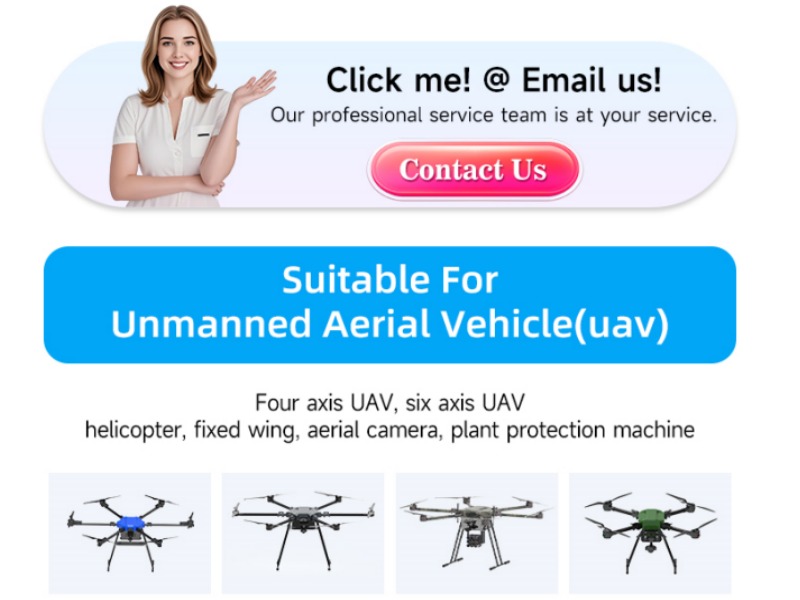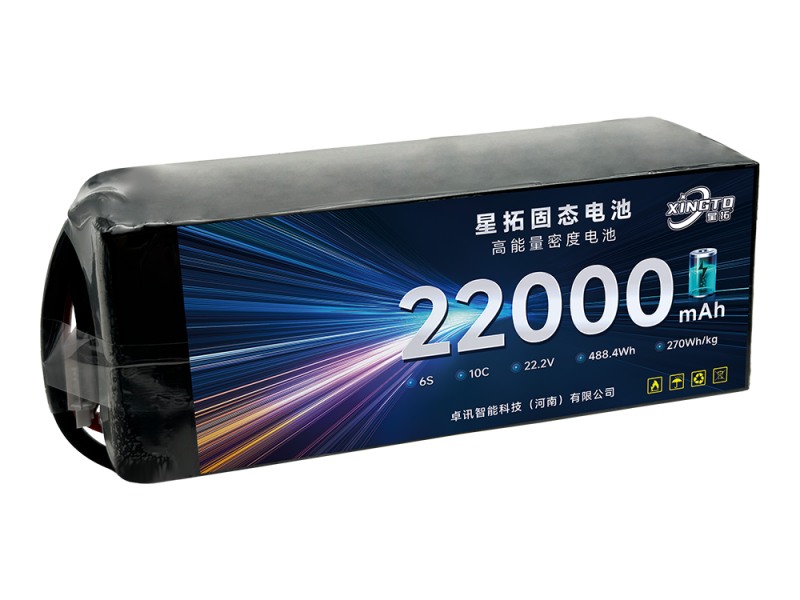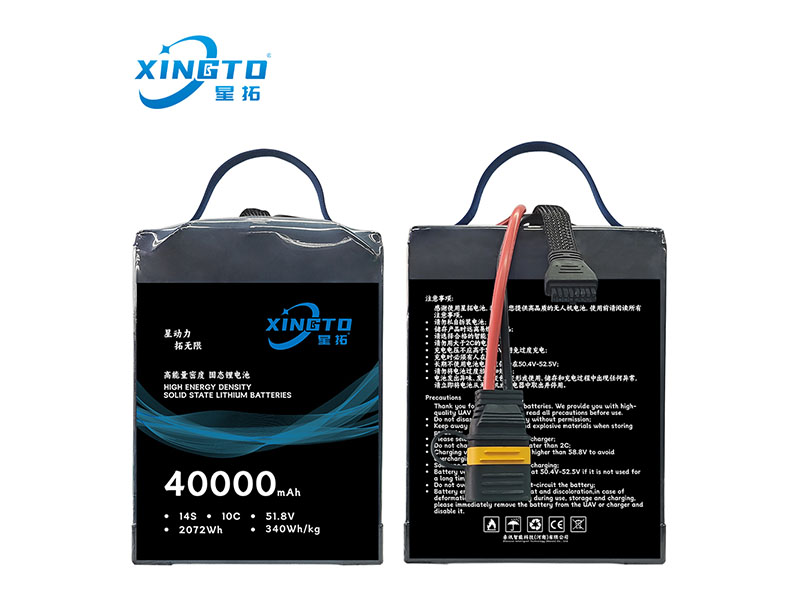Nowadays, drones are widely used in logistics, transportation, aerial photography and other fields. As an important component of drones, the performance of drone batteries is of vital importance, as it directly affects flight time, performance and overall availability. Choosing the right drone battery is crucial. So, which type of battery should be used for drones?
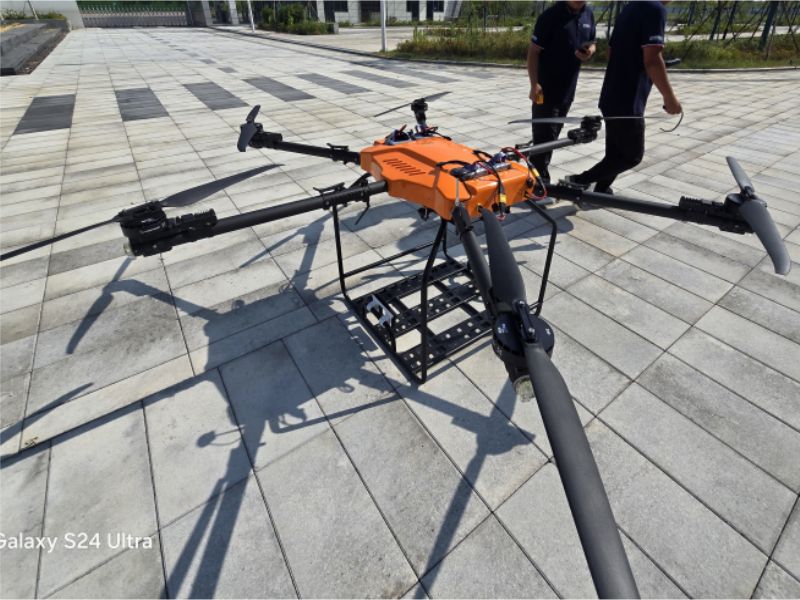
In this guide, we will explore the different types of batteries used in drones, their pros and cons, and how to choose the best one for your needs.
Types of Batteries Used in Drones
1. Lithium Polymer (LiPo) Batteries
Most common in consumer and professional drones.
Pros:
High energy density (more power in a lightweight package)
High discharge rates (good for high-performance drones)
Available in various sizes and capacities
Cons:
Requires careful handling (risk of swelling or fire if damaged)
Shorter lifespan (around 300 charge cycles)
Needs proper storage (charged at 50-60% when not in use)
Best for: Racing drones, FPV drones, and high-performance quadcopters.
2. Lithium-Ion (Li-ion) Batteries
Common in long-flight drones and commercial applications.
There are two types of lithium-ion batteries: liquid lithium batteries and semi-solid lithium batteries. Currently, the more advanced and widely used type is the semi-solid lithium-ion battery. Compared with other batteries, it contains semi-solid electrolytes, is safer, and is smaller in size, lighter in weight, and has a higher energy density. It is particularly suitable for large industrial drones that require long endurance.

Pros:
Higher energy density than LiPo (longer flight times)
Longer lifespan (around 500-1000 charge cycles)
More stable and safer than LiPo
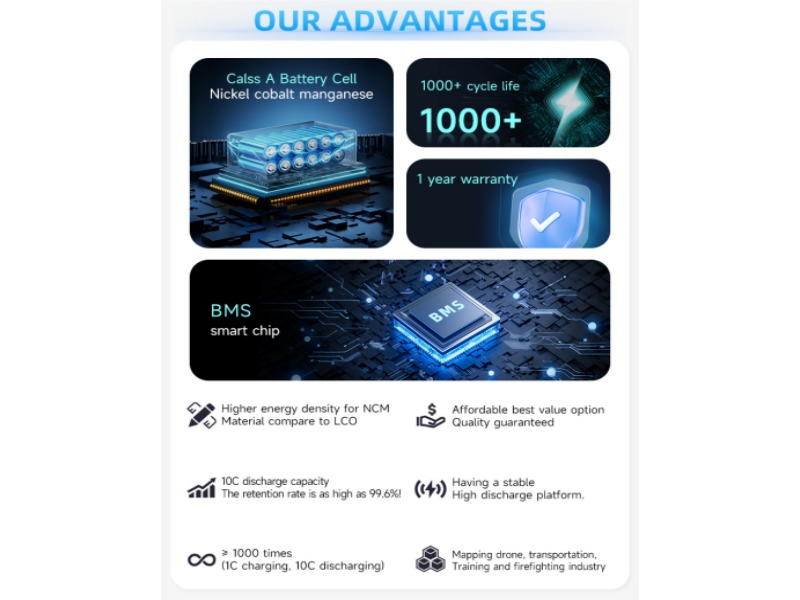
Cons:
Heavier than LiPo (reduces agility)
Lower discharge rates (not ideal for high-speed drones)
Best for: Photography drones (like DJI models), delivery drones, and industrial UAVs.
3. Nickel-Cadmium (NiCd) and Nickel-Metal Hydride (NiMH) Batteries
Older technology, rarely used in modern drones.
Pros:
Durable and resistant to overcharging
Works well in extreme temperatures
Cons:
Heavy and bulky
Lower energy density (shorter flight times)
Memory effect (reduces capacity if not fully discharged)
Best for: Vintage drones or specific industrial applications where weight is not a concern.
4. Hydrogen Fuel Cells (Emerging Technology)
Used in experimental and high-endurance drones.
Pros:
Extremely long flight times (hours instead of minutes)
Environmentally friendly (only emits water vapor)
Cons:
Expensive and not widely available
Complex refueling process
Best for: Military, surveillance, and research drones requiring extended flight durations.
How to Choose the Best Drone Battery
When selecting a drone battery, consider:
Voltage (V Rating) – Higher voltage means more power but requires a compatible drone.
Capacity (mAh) – A higher mAh rating means longer flight time but adds weight.
Discharge Rate (C Rating) – Important for high-performance drones needing quick bursts of power.
Weight – Lighter batteries improve agility but may reduce flight time.
Compatibility – Ensure the battery fits your drone’s power requirements.

Tips for Extending Drone Battery Life
Avoid full discharges – Keep batteries between 20-80% for longevity.
Store properly – Keep at 50% charge in a cool, dry place.
Use a smart charger – Prevents overcharging and balances cells.
Check for swelling – Replace damaged LiPo batteries immediately.
Final Thoughts
Most drones today use LiPo or Li-ion batteries, with LiPo being the standard for high-performance models and Li-ion preferred for long-endurance flights,If you want to achieve higher flight efficiency, it is recommended to use semi-solid batteries.
By understanding the different types of drone batteries, you can make an informed choice based on your needs—whether it is speed, flight time, or durability.
Do you have any questions about the battery of the drone? You can directly contact the online customer service to obtain more knowledge, models, parameters and quotations about drone batteries!


